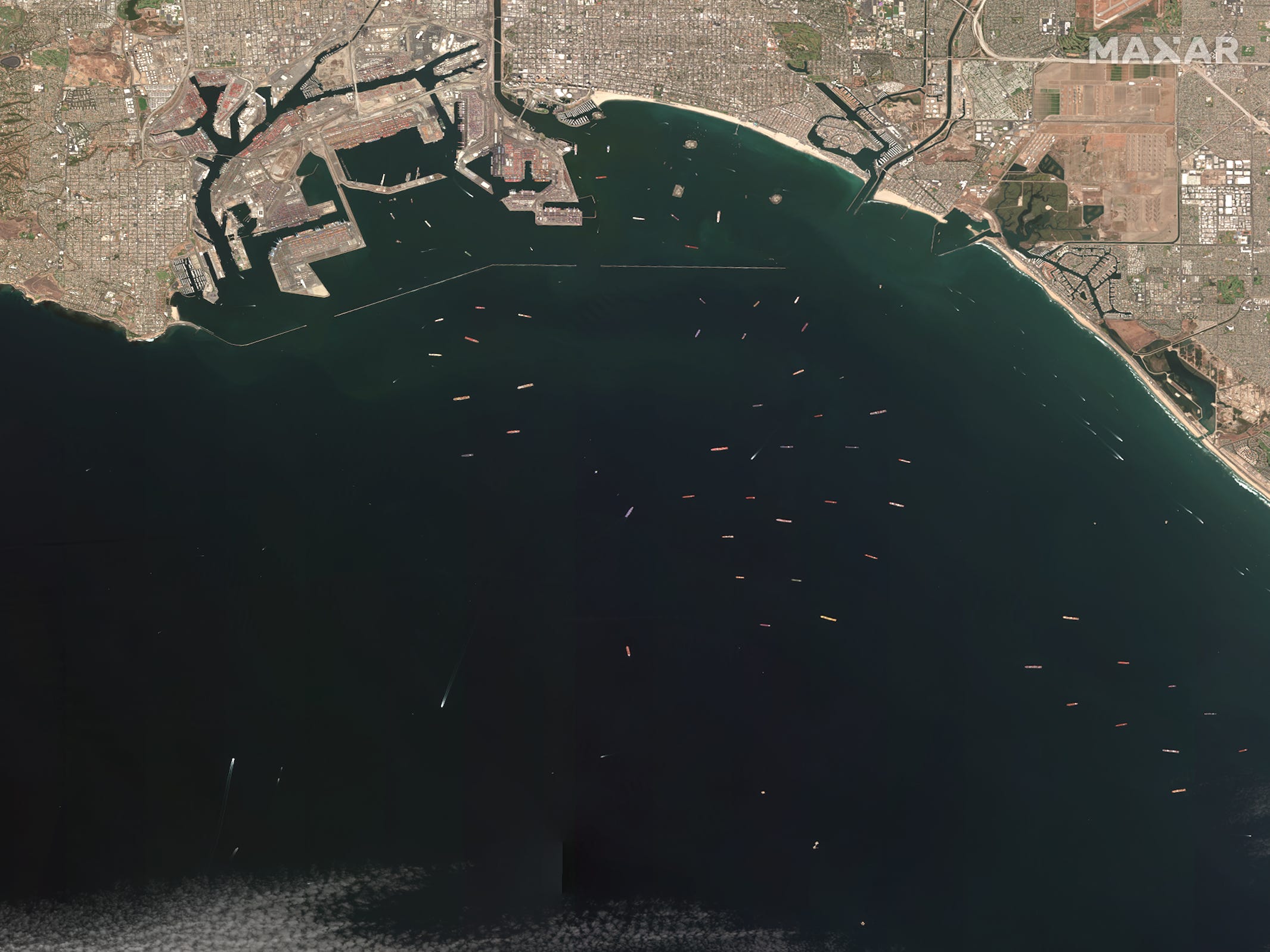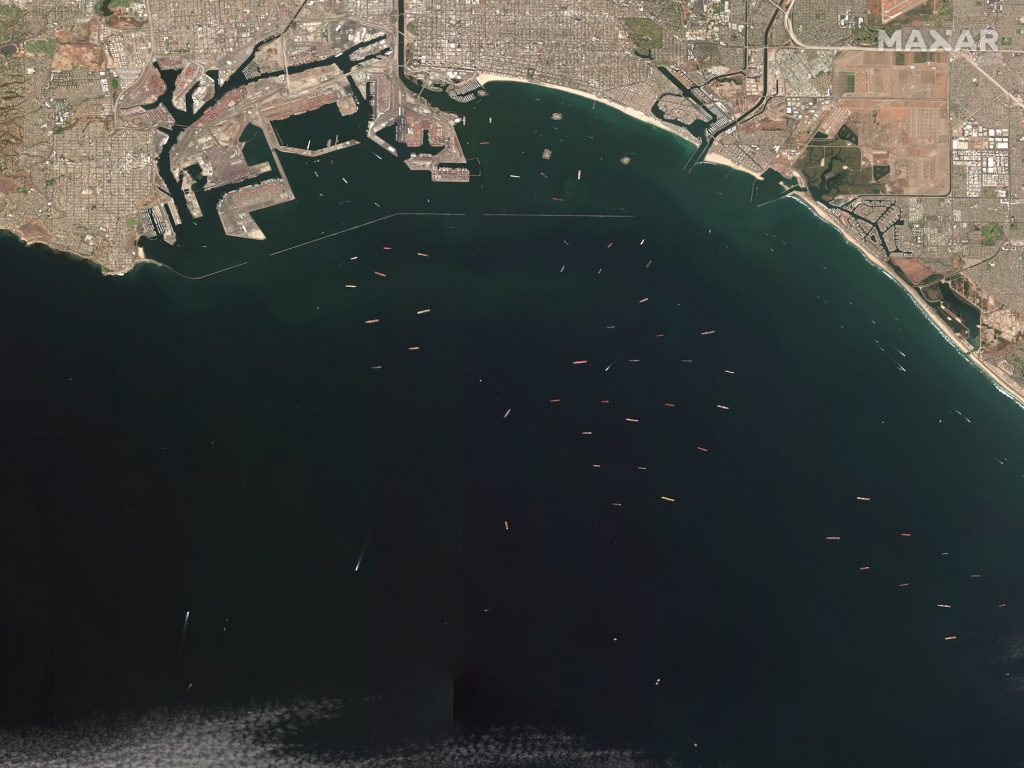
- Winter weather is causing the backlog of ships at the ports of Long Beach and Los Angeles to move further offshore.
- The ships waiting to dock off California's coast are complying with a new voluntary queuing system to improve safety conditions.
- The ships are now required to idle between 50 and 150 miles off of the coasts of California and Mexico.
Winter weather is causing the backlog of ships at California's ports of Long Beach and Los Angeles to move further offshore.
High winds and choppy seas can create dangerous situations for cargo ships, forcing the ships waiting to dock at the US's busiest port complex to move further from the coast for safety purposes.
Approximately 30 ships sat off the coast of Southern California this week waiting to unload their cargo, while nearly 60 more stayed in waters further out to sea, according to the Wall Street Journal. Some ships have even reduced their speed to delay their arrival at the ports to reduce wait times.
The ships waiting to dock off California's coast are complying with a new voluntary queuing system to improve safety conditions and air quality around Southern California's ports while also increasing the efficiency of the ports, according to a statement from Pacific Maritime Association, Pacific Merchant Marine Shipping Association, and Marine Exchange of Southern California who worked together to develop the plan last month.
"This system delivers a pragmatic solution through order and predictability that will reduce the number of ships idling off the coast in the coming months, improve safety, and support the efficient movement of container-based goods," PMSA President John McLaurin said in the statement.
Depending on the direction they are coming from, the ships are required to idle between 50 and 150 miles off of the coasts of California and Mexico. While the vessels can still come into the harbor for fuel and crew changes and normal, the change hopes to reduce the "the historic supply chain congestion that continues to slow trade," according to the statement.
Empty shipping containers gathering near the ports are also adding to the congestion, Insider's Grace Kay reported.
The congestion of the nearly 110,000 empty containers spans up to 80 miles away from the port, filling nearby streets and yards and making it more difficult for supply-chain workers to move goods efficiently.
The empty shipping containers represent another bottleneck in the supply chain and an additional hurdle for ports and warehouses that are running out of space, according to Insider.
The Southern California ports have been struggling to get companies to pick up their goods, while at the same time carriers have faced difficulty returning empty containers.
